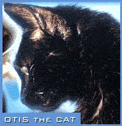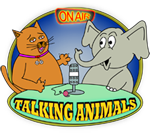Peter J. Wolf—who works for Best Friends Animal Society as cat initiatives analyst, which involves helping the organization shape its community cat policies, and has overseen some of its national cat programs—starts the conversation by answering the almost-inevitable question: How did he move from holding an undergraduate degree in mechanical engineering, and a master’s degree in industrial design, to becoming a community cat expert?  Wolf traces that unlikely path, noting that he grew up in a family where cats were not allowed in the home (though strays were tolerated, if not embraced), but leaving home for college began an extended period of making up for lost time, living with as many as 10 cats as he spent a dozen years working in the automotive industry, switching gears and going to grad school in Arizona, then started teaching, using those summers off to volunteer for various organizations, including Best Friends. Wolf recalls a pivotal experience, helping with a massive hoarding case in Nevada, involving 1000 cats. Another vital episode in Wolf’s narrative, he notes, was seeing an article about feral cats that he thought
Wolf traces that unlikely path, noting that he grew up in a family where cats were not allowed in the home (though strays were tolerated, if not embraced), but leaving home for college began an extended period of making up for lost time, living with as many as 10 cats as he spent a dozen years working in the automotive industry, switching gears and going to grad school in Arizona, then started teaching, using those summers off to volunteer for various organizations, including Best Friends. Wolf recalls a pivotal experience, helping with a massive hoarding case in Nevada, involving 1000 cats. Another vital episode in Wolf’s narrative, he notes, was seeing an article about feral cats that he thought  contained some erroneous information, conducted research and determined it was erroneous, wrote and submitted a rebuttal—which this journal rejected. It’s a fairly straight line from that occurrence to Wolf launching—in April of 2010–Vox Felina, a blog featuring his entries offering observations and analysis of a wide assortment of issues related to community cats, very much including Trap, Neuter, and
contained some erroneous information, conducted research and determined it was erroneous, wrote and submitted a rebuttal—which this journal rejected. It’s a fairly straight line from that occurrence to Wolf launching—in April of 2010–Vox Felina, a blog featuring his entries offering observations and analysis of a wide assortment of issues related to community cats, very much including Trap, Neuter, and  Return (TNR). Vox Felina is not only still a going concern, but a nationally important and influential voice in the realm of feral cats. That’s because—in keeping with his academic background—Vox Felina is propelled by science and research and analysis, elements often missing from discussions and debates about community cats. Indeed, feral cats can be a polarizing topic, with a commonly-voiced concern is the impact on birds, while a another is the influence on other wildlife, but Wolf says it’s often hard to reconcile the statistics and research cited by these feral cat detractors. He fields listener calls and emails about ferals, colonies with diminishing numbers of cats (and in some cases, diminishing numbers of colonies), TNR and trapping, and more. (https://bestfriends.org, http://www.voxfelina.com)
Return (TNR). Vox Felina is not only still a going concern, but a nationally important and influential voice in the realm of feral cats. That’s because—in keeping with his academic background—Vox Felina is propelled by science and research and analysis, elements often missing from discussions and debates about community cats. Indeed, feral cats can be a polarizing topic, with a commonly-voiced concern is the impact on birds, while a another is the influence on other wildlife, but Wolf says it’s often hard to reconcile the statistics and research cited by these feral cat detractors. He fields listener calls and emails about ferals, colonies with diminishing numbers of cats (and in some cases, diminishing numbers of colonies), TNR and trapping, and more. (https://bestfriends.org, http://www.voxfelina.com)

ALSO: I spoke briefly with Helen Freund, Food and Dining Critic at the Tampa Bay Times, who wrote a big, deeply-reported piece (published in print that day; online days earlier), charting the dramatic increase in the embrace of vegan food in the Tampa Bay Area, at restaurants and other eateries, grocery stores, food festivals and elsewhere. Freund recalls being struck by the vegan scene in Tampa when she moved there two years ago from New Orleans—a stupendous food city, but not a stand-out in plant-based offerings, she notes—and saw evidence of an even more vibrant, growing trend since she’s lived here. This constituted the jumping off point for her story, she explains, and she does weigh in on three vegan restaurants she particularly enjoyed in the course of reporting the piece: https://www.tampabay.com/life-culture/food/2021/04/08/tampa-bay-is-experiencing-a-vegan-renaissance/
COMEDY CORNER: Julio Torres “I Am Vegan” (https://spaceprincejulio.tumblr.com)
MUSIC: Rebekah Pulley’s “Talking Animals Theme,” instrumentals
NAME THAT ANIMAL TUNE: We didn’t play “Name That Animal Tune” today.
AUDIO ARCHIVE:
Listen Online Now:



